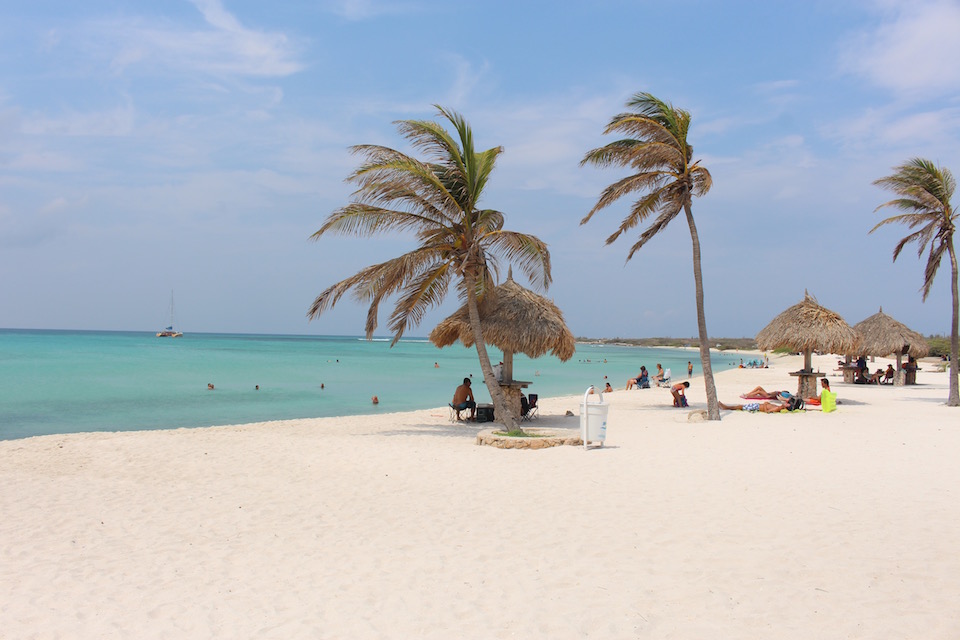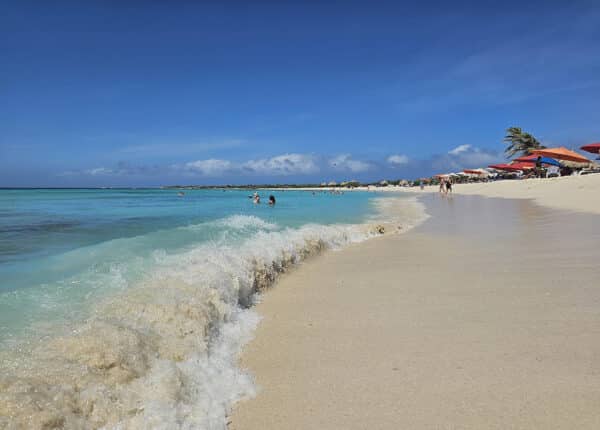A major environmental push in Aruba
By Juliet D. Carvalhal
Op-Ed Contributor
At a beach cleanup in 2014 where I hosted a few teenage students from the environmental club I was volunteering to coach, I asked them a few questions on their thoughts of the overwhelming amount of waste that surrounded us, particularly the flimsy plastic bags. They were indifferent and quiet. Maybe they even played with the thought that my questions were odd. Their reaction or rather, their lack thereof, kept me up for quite a few nights until I realized the status-quo of their environment. They had grown up surrounded by trash. This was their reality.
And it boggled my mind that they did not even mind being there to help clean up.
In a public meeting held on June 28, 2016, Aruba’s Members of Parliament unanimously voted in favor of the proposal to ban single-use plastic bags. The proposal was led by Senator Donald Rasmijn together with Omar Harms and yours truly. The law will take effect as of January 1, 2017 where all retailers and vendors will no longer be able to distribute nor sell carry-out plastic bags intended for single-use at the point-of-sale.
The team of the plastic bag ban has estimated Aruba’s use conservatively at approximately 30 million single-use plastic carry-out bags per year. A large percentage of this consumption is derived from the domestic usage, although a certain amount is also induced by the 1.2 million tourists and shopping visitors to Aruba. While cruise visitors will typically take their carry-out bags received back with them aboard, hotel and timeshare guests will characteristically receive and use (retail and grocery) plastic-bags.
The plastic bag ban and its communication strategy have been designed to encourage a mind- and behavioral shift toward increased corporate responsibility on the supply spectrum, and responsible consumerism on the demand spectrum. Managing our waste on islands, especially those heavily dependent on tourism, has been an ongoing challenge. But then again, being an island in itself also presents our community with added motivation to apply concepts of “Refuse, Reduce, Reuse, and Respect” seeing there is limited or practically non-existent access to “Recycling” facilities.
With the campaign strategy, and in designing the basis of the key messages, the significance needed to be broad enough and specific enough to be relatable to all audiences, especially with the diverse cultural backgrounds of its citizens and guests. Moreover, based on a social adoption study conducted by University of Aruba and TNO in households relative to renewable energy adoption rates, it was ascertained that the population and their behavioral habits respond primarily to positive encouragement, hype, enjoyment, patriotism and pride. As such, the key activities and messaging were designed to promote the willingness to adopt the law with a responsible replacement while constructively encouraging a smooth transition.
The logo of Aruba’s national campaign and educational platform, with both supply-driven and demand-driven activities, includes an image of one happy turtle with the tagline and call-to-action “My bag is Reusable” in Aruba’s local language Papiamento. With the overwhelmingly positive response thus far within the community, Aruba can be optimistic that the implementation phase starting in January will also be well-received.
This law provides us all with the opportunity to take one simple and corrective action. In my twenties I spent a summer in Berlin. The following quote that was on the Berlin Wall has stayed with me since and has inspired me throughout this process, and it affirms that “Many Small People who in Many Small Places do Many Small Things can Alter the Face of the World”.
Juliet D. Carvalhal is the Special Coordinator Green Agenda for the Government of Aruba. The views and opinions expressed in this article are those of the author and do not necessarily reflect the official policy or position of the Government of Aruba nor the Parliament of Aruba.
Note: the opinions expressed in Caribbean Journal Op-Eds are those of the author and do not necessarily reflect the views of the Caribbean Journal.







